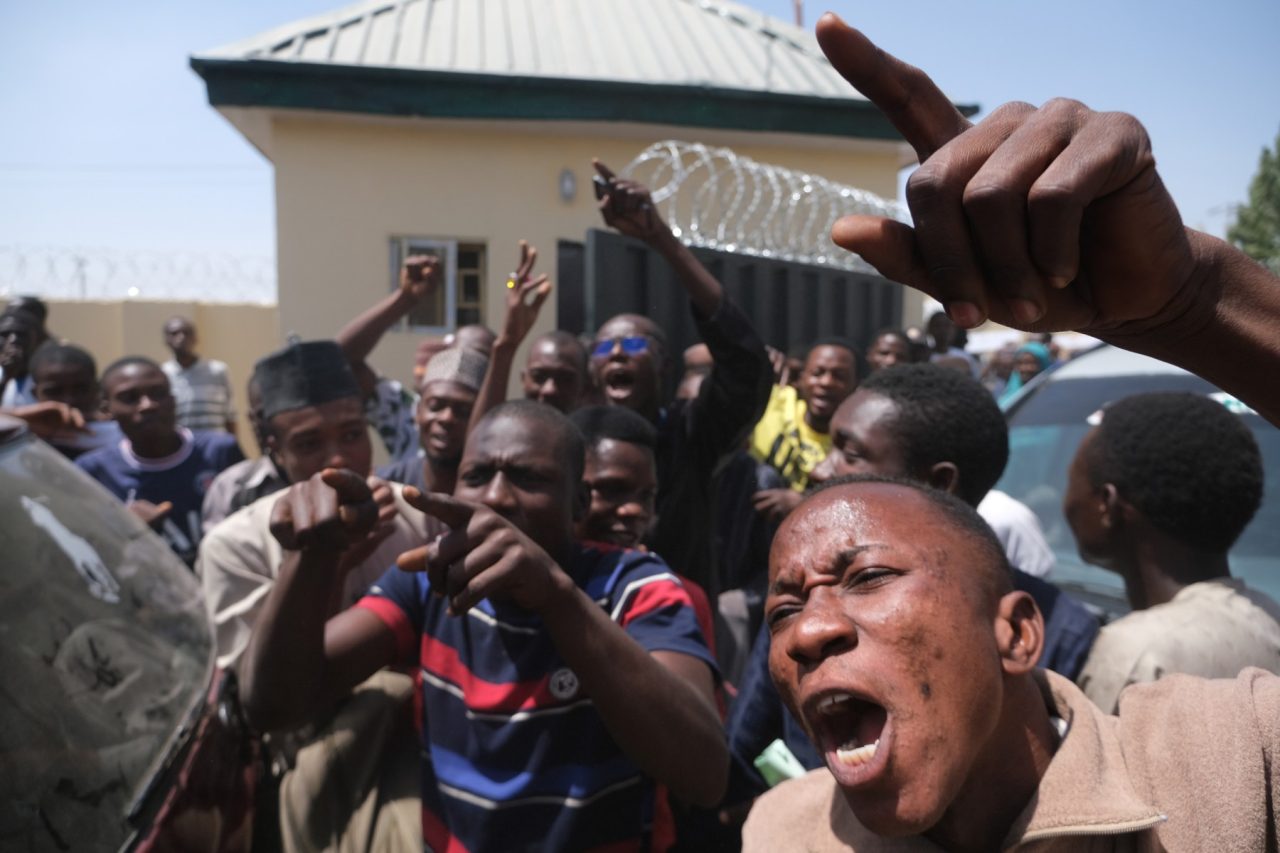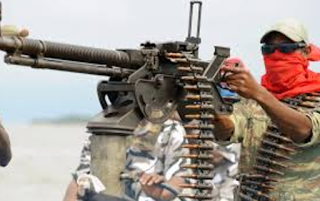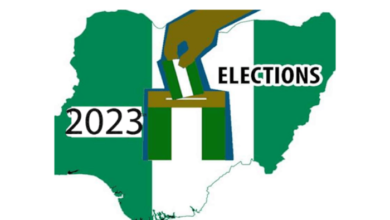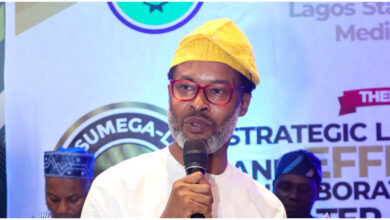By: Kindness Udoh
There seems to be a method to the madness that is Nigerian politics, often employing the divide-and-rule strategy. This technique proves highly effective, with politicians utilizing it and their foot soldiers (aka minions) executing it skillfully. Of course, dividing a people requires targeting the ‘weakest links,’ which, unfortunately, are not in short supply.
In my previous newsletter, I acknowledged Nigerian politicians’ remarkable ability to undermine the nation’s fragile unity using this tool. At that time, Hilda Bassey had achieved a record-breaking milestone, and Nigerians from all walks of life came together to show their support.
Here’s what I said, “Under the changing climatic conditions, they stood. They danced, cheered, chanted, and feasted. They all shared in the unity that has continued to be tested. For 100 hours, she cooked, and Nigerians watched on. It didn’t matter who she was at that point, support poured in uninhibited.
“That fabric of unity only starts to deteriorate when some self-indulgent politicians chip at it during their election leagues (they are leagues, and the game’s an extreme sport). They use that unity as a base point of attack.”
That fabric of unity is under serious test, even beyond the election period when this strategy is commonly employed. It comes as no surprise, as divisive narratives persistently emerge as a distraction from the most important conversations necessary to benefit all Nigerians.
The divisive fault lines have ranged from arguments like South vs North, mixed with religious supremacy narratives, claiming the lives of hundreds of thousands of Nigerians. In a not-so-distant memory, the relatively unknown group, especially to those based in the southern part of the country, the Miyetti Allah Cattle Breeders Association of Nigeria (MACBAN) took center stage in political matters.
They rose so fast to prominence under the gaze of the last administration, and weaved narratives that threatened to fracture the country before May 29, 2023. Again, the fabric of unity, though strained, found a way to come out frayed but resilient, showcasing the indomitable spirit of Nigerians.
In the fringes of all that conversation was a brewing intra-regional animosity. Southerners went for each other’s necks – especially two of the three major tribes in the country – fueled by the inherent incapacities of Nigerian politicians to see beyond their bloated greed.
Now, that the elections are over, conversations about national development and political responsibility and accountability are discussed in tandem with the evergreen Igbo vs Yoruba narrative, one that seems to resurface every four years, or when our intellectually lazy political elites seek to sweep into the corridors of power by creating an atmosphere of division, perpetuating marginalization.
These divisions are fueled by spurring in their followers a sense of ethnic pride as against a national one. The idea of “we are merely looking out for ourselves” quickly becomes the fallback defense. An unfounded belief that the “omo Igbos” have come to steal our land, puts people of Igbo extraction in the crosshairs of an ethnic revolver, with confident ignorance and a lack of will power to attain self-enlightenment pulling the trigger.
A prime example is the legislation proposed by the Lagos State House of Assembly, to protect the “interests” of Lagos indigenes -a move borne out of intellectual laziness.
The popularity of an Igbo man, Peter Obi (presidential aspirant), in the last general elections and that of a Lagos indigene, Gbadebo Rhodes-Vivour (governorship aspirant), whose mother happens to be Igbo, reminded the members of the Lagos State House of Assembly of the need to “protect the interest of our people”.
The speaker of the Lagos parliament, Mudashiru Obasa, said of the proposed law, “Lagos is a Yoruba land as against the assertions of some people that it is a no man’s land.
“We also aim at achieving our collective goals of creating a robust legislative framework that protects the interest of our people. Going forward in this wise, we are going to employ all legislative instruments for the support of the indigenes of Lagos.
“There would be laws and resolutions in the areas of economy and commerce, property and titles, and we will reverse all that is reversible to protect the interest of the indigenes.”
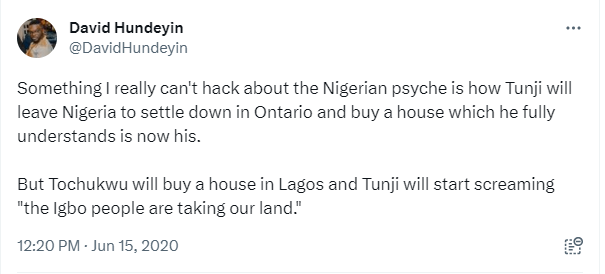
One would think that these parliamentarians have devoted their lives to improving the lives of Lagos indigenes with every law that has been passed.
A little story: during the COVID lockdown, in Obasa’s constituency (Agege Local Government), residents of each house received four loaves of bread as palliatives. I can vividly recall a video showing a young man who, out of anger, kicked one of the breads (a small-sized loaf) into the air, cursing.
What happened to protecting the interests of the indigenes then? Or the houses that had only Lagos indigenes received hefty relief packages? Please, anyone with knowledge of the matter should enlighten me.
The facade that is that inane legislation is so transparent as it is laughable. What saddens me is that their minions, those who think that the law is truly in their favor, are also victims of this politicking of the Nigerian life.
It is day 12 and Nigerians are still running, I hope you never get tired because this marathon is four-year long (best case scenario).
Cheers. Have a wonderful weekend.
Editor’s note: This article was first published in Substack.
